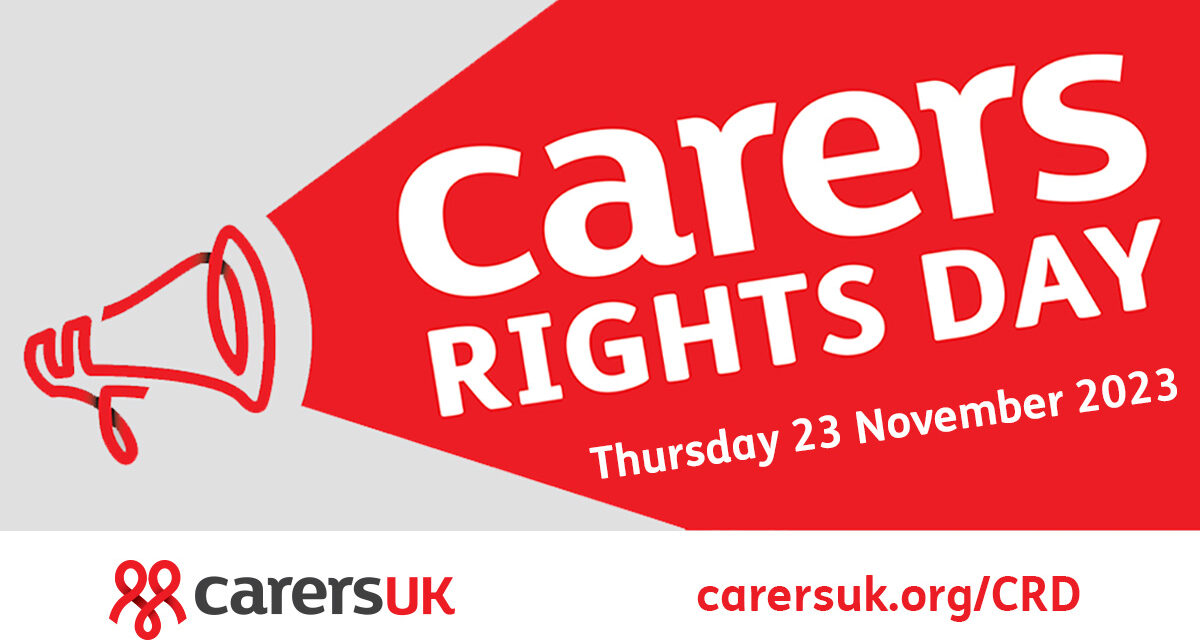This years theme
23 November marks Carers Rights Day 2023. This year’s theme is: ‘Your Rights: today, tomorrow and in the future’.
This year’s theme aims to highlight the specific rights unpaid carers are entitled to. The new rights for those juggling work with their caring responsibilities, and the continued work to see new improved rights to make life better for carers.
Carers UK promotes this day to raise awareness and help signpost carers to information, advice, and support.
Being an unpaid carer
We spoke with an anonymous person who has shared their experience of being a personal career for their partner. Their partner was involved in an accident and was seriously injured.
“At the hospital, it was immediately obvious that my partner would not walk again; that he was paraplegic. He would be transferred to a specialist spinal unit north of London where he stayed for nine months except for a ‘change of scene’ while he waited for rehab. A month in a local dementia care home, there was no other provision available”.
With the help of friends, this person sold their partner’s car, motorbike, and mountain bikes to help pay for necessary home adaptation works.
Heartbreakingly, in the same week this person’s partner was involved in a crash, they received the news that their mother had a dementia diagnosis:
“Suddenly I was a carer to both my partner and my mother while supporting our ten-year-old daughter and running my own business. Something had to give. I shut the business and stopped working completely in those early years. The money quickly ran out, so then becoming an expert in benefits was added to my portfolio of roles”.
This person comments that becoming a carer isn’t always a choice you positively make. In their case, ‘it wasn’t in the plan’.
As time went on, building work was completed, and care arrangements were put in place.
Support available and key challenges
We asked this carer some questions to help highlight the support available, the key challenges of being a carer and how they overcome them:
What support network(s) do you have?
If it weren’t for the unwavering and practical support from our friends and neighbours, I don’t know where we would have been at the beginning, or where we would be now. Our GP and practice staff have also been great throughout, as have occupational therapists, physiotherapists, psychologists, and social workers.
What are the challenges?
Keeping everyone afloat all at the same time, emotionally, financially, and practically.
How do you overcome them?
By being very organised. It’s very difficult when one person’s arrangements need to change, or something urgent comes up as it impacts on everything and everyone else. Not much room for manoeuvre!
What support systems do you have access to?
I know who to ask and where to go if we need something specific.
What does your work do to support?
My work offers me the flexibility I need to work hours to suit my caring and parental responsibilities. Which is not the case with every employer, although it should be, to enable many more carers who want to, return to work.
What advice would you give to new carers, any top tips?
If you can, build a team around yourself and the person(s) you care for. So that you can feel as sure as you can that as each new ‘drama’ arises (and it does) you have an idea of where to start and who might be able to help.
Information for unpaid carers
If you are juggling work with your caring responsibilities, you have the right to request flexible working. Carers UK has a range of information on what your rights are and how to make the request with your employer. Visit their website for more information.
Whether you’ve just started looking after someone or have been supporting them for a while, the carers checklist will help you get the support and information you need.




